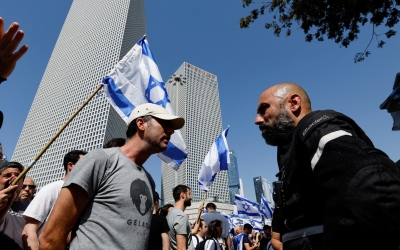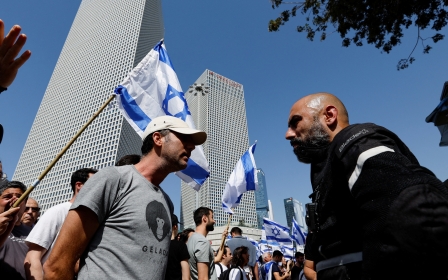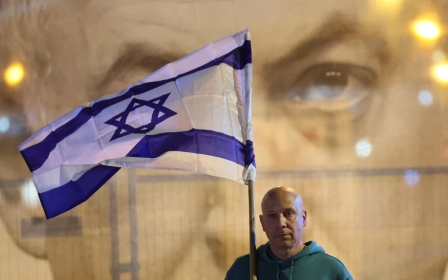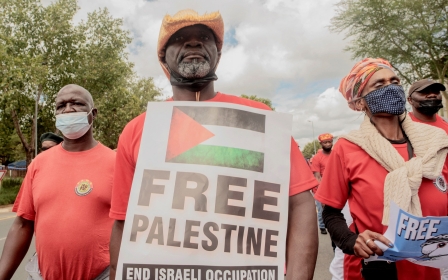Israeli protesters disrupt Netanyahu trip to Rome on 'day of resistance'
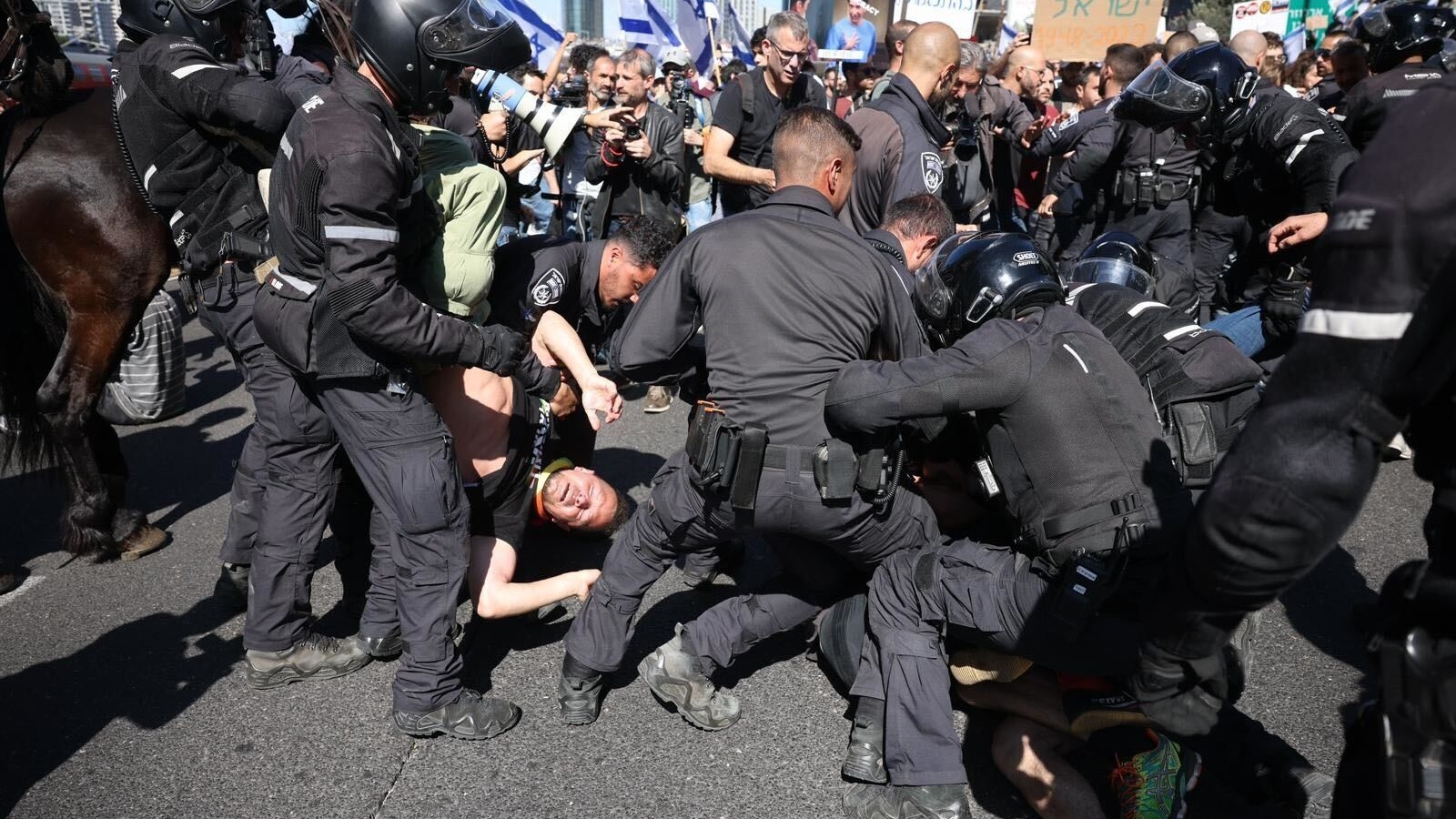
Protesters in Israel gathered outside the country’s main airport on Thursday to disrupt a trip abroad by Prime Minister Benjamin Netanyahu as part of a “day of resistance” against a controversial judicial overhaul.
Netanyahu was due to leave Ben Gurion airport near Tel Aviv for a two-day visit to Rome on Thursday afternoon.
However, demonstrators blocked traffic on the road to the airport.
Israeli media reported that the prime minister and his wife Sara may have used a helicopter to evade the disruption on Thursday morning.
"I’m here because I have three children and I’m afraid for their future," said Zohar, a 45-year-old protester.
New MEE newsletter: Jerusalem Dispatch
Sign up to get the latest insights and analysis on Israel-Palestine, alongside Turkey Unpacked and other MEE newsletters
"The government kidnapped our country. They want to pass laws that will give them unlimited power, mostly to Netanyahu," he told Middle East Eye. "They want to cancel all the human rights here and this is terrible."
US Defence Secretary Lloyd Austin cut short a trip to Israel due to the protests. He was due to meet his Israeli counterpart in Tel Aviv, but the meeting will instead take place at a venue near the airport.
Police Minister Itamar Ben-Gvir was at the airport coordinating the response to the protests when he told reporters: "Nobody said don't protest… but it's not okay, it's not right, it's not proper to ruin the lives of 70,000 people."
Elsewhere, protesters in Tel Aviv headed towards Ayalon highway, where police were on standby with water cannons.
The highway has been a key flashpoint between demonstrators and police in recent weeks.
A lawyers’ protest group known as "black robes" is also expected to take to the streets of central Tel Aviv.
Turning Israel into a 'dictatorship'
The proposed judicial reforms would give parliament both the power to override Supreme Court decisions through a simple majority vote, and de facto control over court nominees, a role currently held by a mixed panel of politicians, judges, and bar association members.
It would also limit the court's ability to overturn unconstitutional legislation.
An Israeli parliament committee last week approved the restriction of the Supreme Court's power to override laws, which is a significant part of the overhaul.
The bills will now go through three readings at the Knesset before a final vote.
Nava Relzolyo, a 36-year-old woman from Tel Aviv, said she joined the protest to voice her rejection of "the government's attempt to control the courts and be above the law".
"That will basically turn Israel from a democracy to a dictatorship," she added.
Relzolyo told MEE the police repression of the non-violent protests will not silence them. "We are stronger and more determined to speak up and say that we won't agree to the brutal coup that they are planning."
At least 15 protesters have been arrested since Thursday morning.
Seven of those were detained during an army reservist rally near the Kohelet Policy Forum building in Jerusalem, where protesters blocked entry into the offices.
The organisation is seen by some protesters as an important ally of Israel’s far-right government.
Army reservists also took part in a flotilla led by navy veterans near the northern port city of Haifa.
On Sunday, 37 out of 40 reserve pilots in an elite Israeli air force unit announced that they would not participate in training or duty in protest against the judicial reforms.
Their decision came days after reservists from the Unit 8200 intelligence corps also began strike action over the government's plans.
Middle East Eye delivers independent and unrivalled coverage and analysis of the Middle East, North Africa and beyond. To learn more about republishing this content and the associated fees, please fill out this form. More about MEE can be found here.


